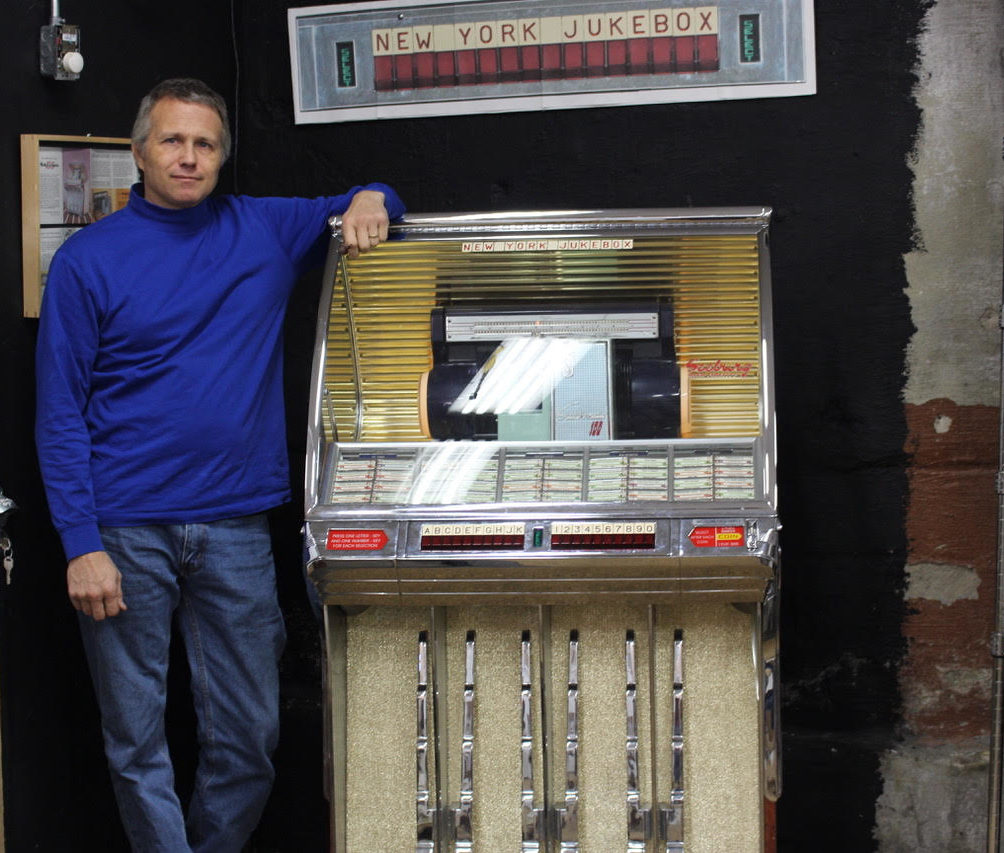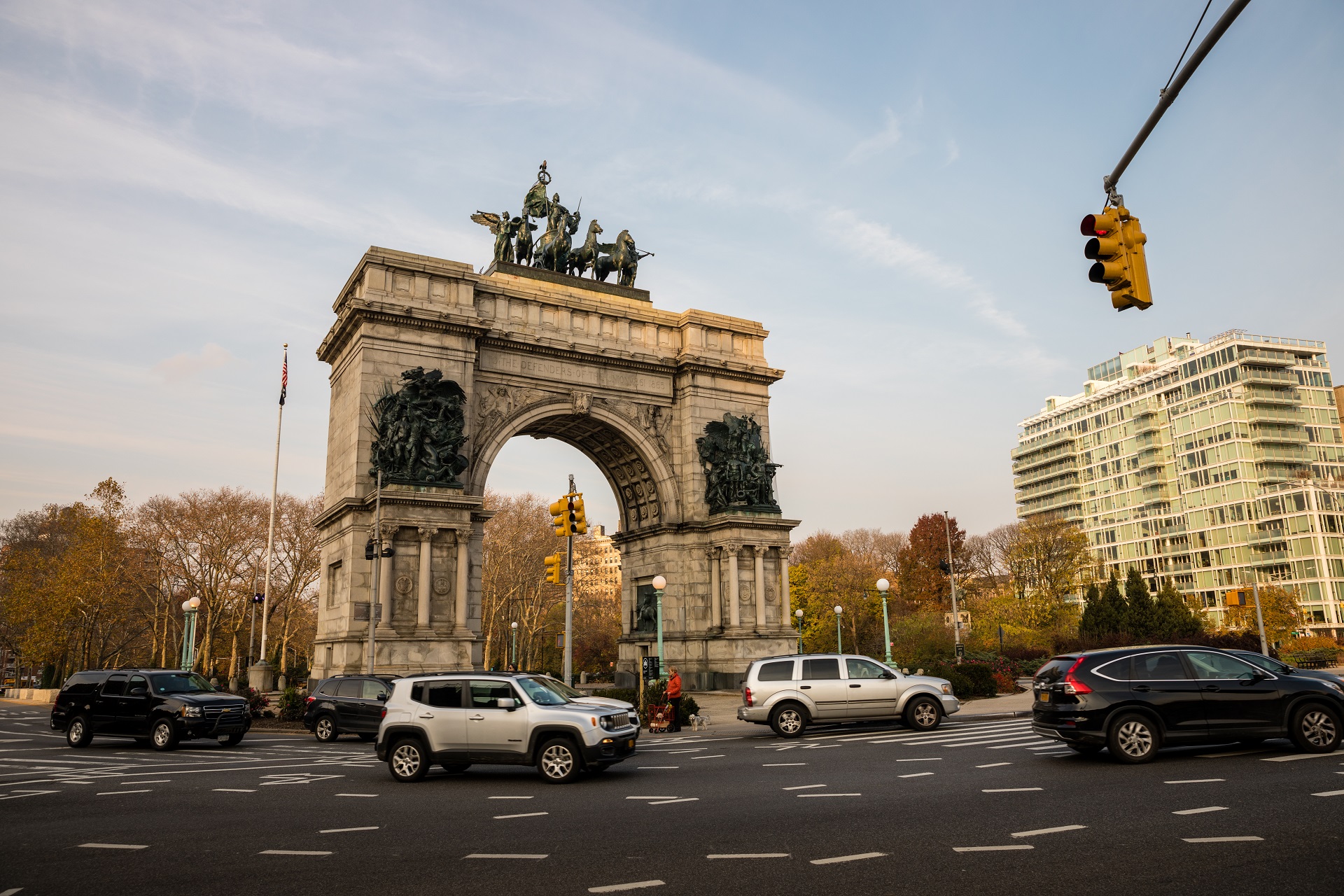The jukebox man: Terry Swords brings music to the streets in Prospect Heights
Out of a Dean Street garage, an entrepreneur restores and rents jukeboxes

On the sidewalk in front of a converted garage at 838 Dean Street in Prospect Heights stands a jukebox with an accompanying chalkboard sign coaxing passersby to “Play Me, Rent Me.” The shiny piece of nostalgia and its songs’ half-block-long reverberations is how Terry Swords lures pedestrians into New York Jukebox, where he sells, repairs and rents jukeboxes of a bygone era.
“Every. Single. Person. Expresses a feeling of being thrilled or delighted when they see it for the first time,” Swords told the Brooklyn Eagle of his sidewalk jukebox. “It’s really nice.”
There are a half-dozen more inside, with rows of 45s perched overhead. Some jukeboxes await repairs. Others have been restored to dazzling glory as rentals. There are also a couple skeletons, their outer shells removed to reveal circuit board guts and veins of wiring.
